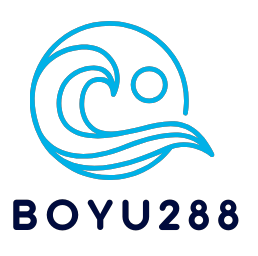The future of hotel management is increasingly intertwined with advanced technology, and channel manager software is at the forefront of this evolution. As hotels strive to optimize operations, enhance guest experiences, and stay competitive, selecting the best channel manager software becomes crucial. Here’s an exploration of the future trends in hotel management and a look at some of the best channelmanager software options available:
Future Trends in Hotel Management
1. Integration with Emerging Technologies
– Artificial Intelligence (AI): AI-powered tools for predictive analytics, dynamic pricing, and personalized guest experiences will become more prevalent. Channel managers integrated with AI can offer smarter rate adjustments and targeted marketing strategies.
– Machine Learning: Machine learning algorithms will help refine pricing strategies, forecast demand more accurately, and enhance decision-making processes.
– IoT (Internet of Things): IoT devices will enable real-time monitoring of hotel operations, from energy management to guest preferences, allowing for more efficient and responsive channel management.
2. Enhanced Data Analytics
– Advanced Reporting: Future channel managers will offer more sophisticated analytics tools, providing deeper insights into guest behavior, booking patterns, and channel performance.
– Big Data Integration: Leveraging big data to gain actionable insights and make informed decisions will become increasingly important for optimizing revenue and improving guest experiences.
3. Personalization and Customization
– Tailored Offers: Channel managers will integrate with CRM systems to deliver personalized offers and promotions based on guest data and preferences.
– Customized Booking Experiences: Enhanced personalization features will allow hotels to offer tailored booking experiences, including customized room rates and packages.
4. Automation and Efficiency
– Automated Workflows: Automation will continue to play a significant role in streamlining operations, from booking confirmations to rate adjustments and inventory management.
– Self-Service Options: Self-service features for guests and staff will become more common, including automated check-ins, room assignments, and guest communication.
5. Multi-Channel and Omni-Channel Distribution
– Expanded Channel Reach: Future channel managers will support an even broader range of distribution channels, including niche OTAs, local booking platforms, and emerging global networks.
– Omni-Channel Integration: A unified approach to managing all distribution channels, including direct bookings, OTAs, and GDSs, will become more seamless, providing a consistent experience across platforms.
6. Focus on Sustainability
– Green Practices: Channel managers will support hotels in promoting their sustainability initiatives, including energy-saving measures and eco-friendly practices, to attract environmentally-conscious travelers.
– Sustainable Revenue Management: Incorporating sustainability into pricing strategies and distribution channels will become a priority, aligning with global trends toward responsible tourism.
Top Channel Manager Software Options for the Future
1. SiteMinder
Features:
– AI-Powered Pricing: Advanced AI tools for dynamic pricing and demand forecasting.
– Extensive Integrations: Connects with over 400 OTAs and GDSs.
– Robust Analytics: Provides in-depth reporting and insights.
– Mobile Access: Manage operations through mobile apps.
Best For: Large to mid-sized hotels seeking a comprehensive solution with cutting-edge technology and broad connectivity.
2. Cloudbeds
Features:
– Integrated Suite: Combines channel management with PMS and booking engine.
– Smart Pricing Tools: AI-driven dynamic pricing and revenue management.
– Advanced Analytics: Detailed performance metrics and forecasting.
– Unified Platform: Centralized management for all hotel operations.
Best For: Hotels of all sizes looking for an integrated, all-in-one solution with advanced features.
3. eZee Centrix
Features:
– Real-Time Updates: Automatic synchronization of rates and availability.
– Wide Distribution Network: Connects with numerous OTAs and booking platforms.
– Flexible Pricing: Dynamic pricing tools for optimizing revenue.
– Customizable Reporting: Tailor reports to specific needs.
Best For: Small to mid-sized hotels needing an affordable and flexible channel management solution.
4. Hotelogix
Features:
– Seamless Integration: Easy integration with PMS and other systems.
– Real-Time Synchronization: Accurate updates across channels.
– Multi-Channel Distribution: Extensive connections with OTAs and booking sites.
– User-Friendly: Intuitive interface and easy setup.
Best For: Smaller hotels and boutique properties seeking an affordable and user-friendly solution.
5. STAAH
Features:
– Dynamic Rate Management: Tools for adjusting rates based on market conditions.
– Broad OTA Network: Connects with various OTAs and booking channels.
– Mobile Management: Access and manage operations via mobile devices.
– Competitive Pricing: Cost-effective solution with good support.
Best For: Budget-conscious hotels needing a reliable and easy-to-use channel manager.
6. RMS Cloud
Features:
– Comprehensive Suite: Includes channel management, CRM, and marketing tools.
– Advanced Analytics: Detailed reporting and data insights.
– Scalable Solutions: Suitable for properties of all sizes.
– Integration: Integrates with various hotel management tools.
Best For: Larger hotels or chains requiring a scalable and feature-rich solution with robust analytics.
Conclusion
The future of hotel management will see increased reliance on advanced technology, with channel managers playing a pivotal role in driving efficiency and revenue growth. By selecting the best channel manager software that aligns with your property’s needs and goals, you can stay ahead of industry trends, optimize your distribution strategy, and enhance overall operational performance. Consider the latest features, technological advancements, and your specific requirements to make an informed decision and position your property for success in the evolving hospitality landscape.
